Economy
Politics
AN, ANURA KUMARA DISSANAYAKE, ASIA, COLOMBO, DI, DIPLOMACY, DISSANAYAKE, EUROPE/ASIA, HERATH, IMF, INDIA, INDIA FOUNDATION, INFRASTRUCTURE PROJECTS, INTERNATIONAL MONETARY FUND, INTERNATIONAL RELATIONS, LANKA, NA, NARENDRA MODI, QI ZHENHONG, RUSSIA, SRI LANKA, SRI LANKAN, TRADE, VI, VIJITHA HERATH, WORLD BANK
Sophia Klein
Sri Lankan President Dissanayake to Visit China Following India Engagement
Sri Lankan President Anura Kumara Dissanayake will visit China next month after his trip to India. The newly elected government aims to establish “win-win” relations globally while prioritizing economic stability and tourism recovery. Concerns about foreign research vessels and the situation of Sri Lankan refugees in India were also addressed by Foreign Minister Vijitha Herath during discussions in Delhi.
Following his recent visit to India, Sri Lankan President Anura Kumara Dissanayake is scheduled to travel to China next month. This announcement was made by Sri Lankan Foreign Minister Vijitha Herath, who emphasized the newly elected government’s intention to cultivate mutually beneficial relations with various nations. During discussions with Indian Prime Minister Narendra Modi, President Dissanayake assured that Sri Lankan territory would not be used in ways that jeopardize India’s security or regional stability.
On Tuesday, after a pilgrimage to Bodh Gaya, Mr. Dissanayake returned to Colombo. Minister Herath expressed aspirations for positive relations not just with China and India but also with the United States, Russia, Cuba, and North Korea. He noted that fostering ties with both India and China would remain a priority for the government, although the Indian visit was underscored as significant.
In relation to President Dissanayake’s interactions in India, Chinese Ambassador Qi Zhenhong conveyed that China welcomed the visit, recognizing India as a close neighbor to Sri Lanka. The Ambassador indicated that Mr. Dissanayake’s upcoming trip to Beijing would reinforce traditional friendships and advance bilateral economic cooperation.
Moreover, Foreign Minister Herath highlighted the urgent need for Sri Lanka to stabilize its economic conditions, restructure its debt with the International Monetary Fund and World Bank, and increase tourism revenue. He pointed out the adverse impacts on the tourism sector resulting from multiple crises, including the Easter Sunday attacks, the COVID-19 pandemic, and the recent economic crisis. To stimulate tourism, the government plans to implement free visa policies for citizens of 39 countries, including India, urging reciprocation to enhance bilateral tourism.
Concerning foreign vessels, Mr. Herath refrained from providing definitive answers about the future of foreign research ships, particularly those from China, once the existing moratorium expires. He remarked on the necessity of establishing a national policy regarding such vessels due to previous objections from India, which has expressed concerns that these ships may serve dual purposes—research and strategic data collection—as alleged by India but denied by China. Following the dialogue between Modi and Dissanayake, India offered its resources and training to mitigate Sri Lanka’s reliance on foreign vessels.
Lastly, Foreign Minister Herath addressed the plight of Sri Lankan refugees in India, many of whom fled during the ethnic violence in the 1980s. While the government is considering the situation of these refugees, many remain uncertain about their future. According to the Organisation for Eelam Refugees’ Rehabilitation, approximately 57,000 displaced individuals reside in camps in Tamil Nadu, with an additional 34,000 settled in various cities across the state.
Sri Lanka is currently navigating complex international relationships amidst economic challenges and regional geopolitical dynamics. The new government, under President Anura Kumara Dissanayake, emphasizes building constructive partnerships with major global players like India, China, and others. The focus is on stabilizing the economy, enhancing tourism, and addressing the needs of citizens, including displaced individuals, while managing foreign influence in strategic maritime affairs. The discussions surrounding the relationships with India and China are particularly pivotal given their historical and regional significance.
In summary, President Dissanayake’s upcoming visit to China follows his recent engagement with India, demonstrating Sri Lanka’s commitment to balanced foreign relations. The government’s primary aim is to improve its economic stability and tourism sector while carefully navigating maritime security issues involving foreign vessels. The administration is also addressing the complexities surrounding Sri Lankan refugees in India, illustrating a comprehensive approach to national and international challenges.
Original Source: www.thehindu.com
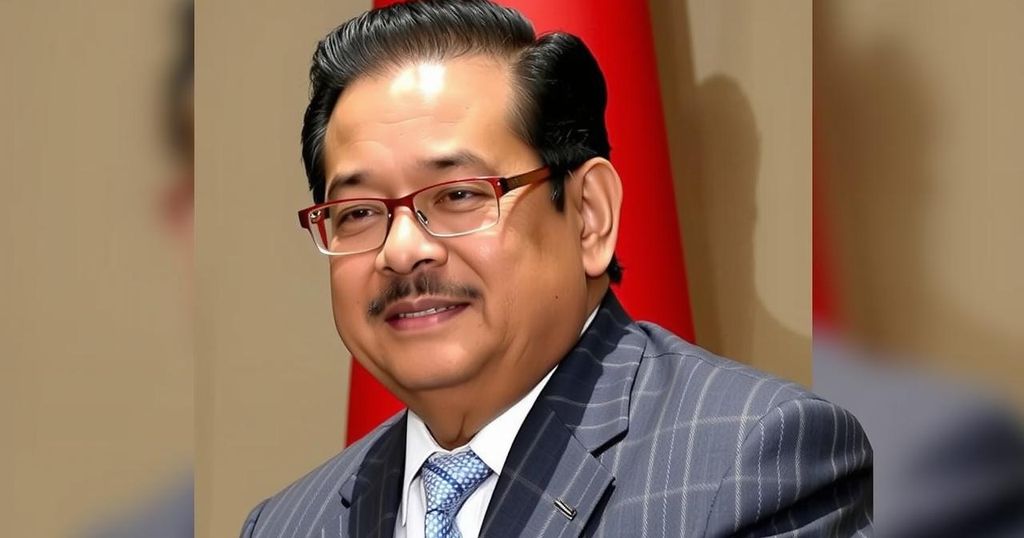
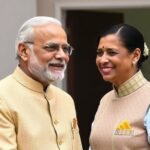
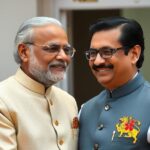
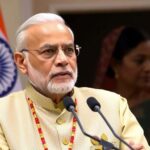
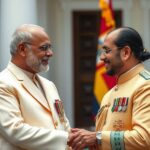



Post Comment